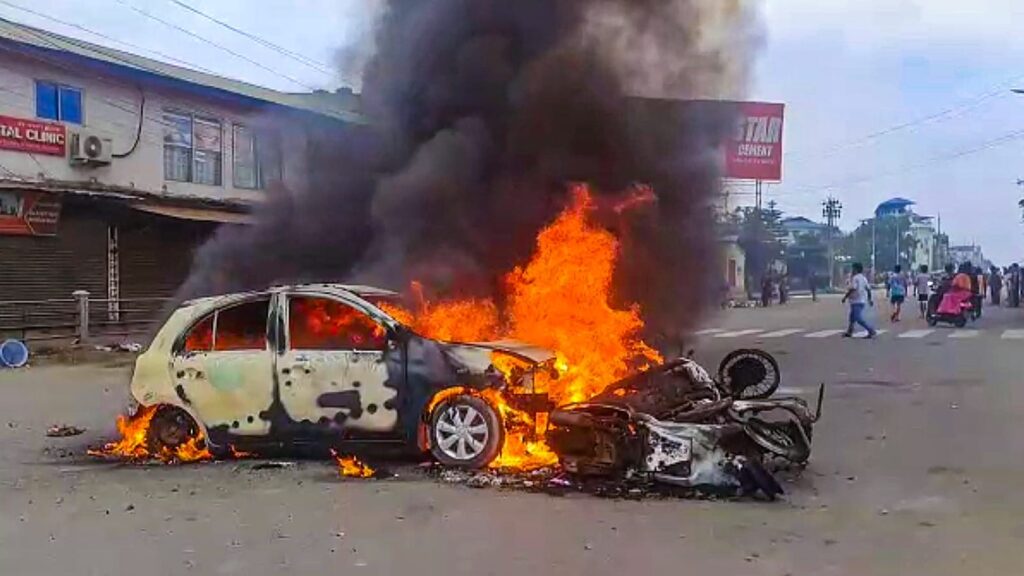It is not every day that thousands of security personnel march through the streets of a state capital as the government issues shoot-at-sight orders. The events unfolding in Manipur may have their seed in old fault lines of anxiety and alienation between the populations of the hills and plains regions of the state. Yet, the immediate trigger is a proposal to tweak the reservation framework and bring the majority Meitei community under the scheduled tribe (ST) fold. In a state where ST quota is nearly a third, this translates into very real shifts in employment and education opportunities, and therefore relative community power. On April 19, the Manipur high court told the Bharatiya Janata Party-led state government to submit recommendations to the Centre to consider inclusion of Meiteis – who form roughly 60% of the state’s population, reside largely in the Imphal valley, and are largely Hindus – in the ST list. The proposed tweak fuelled concerns among the tribal Naga and Kuki communities, who are primarily Christians, make up around 40% of the state’s population and live in the hill regions. They say the move will hurt the interests of tribespeople, and open the door for purchase of land in the hill areas, which is currently barred as per provisions of Article 371C of Constitution and other notifications.
The violence is regrettable and both sides should desist from further fuelling tensions even as authorities try to restore peace in the state. But the incident holds key lessons for policymakers, and underlines why they need to be cautious when attempting to tinker with the affirmative action framework. In the past decade, economic and social anxieties have fuelled quota demands from dominant communities such as Jats, Gujjars, Patidars, Marathas, many of which tipped into violence and have only been partially resolved. In the run-up to the Karnataka elections, too, some groups such as Banjaras protested internal sub-divisions in the scheduled caste bracket. Politically expedient quota promises may be emerging as a potent electoral strategy but they hold real dangers of undermining social cohesion, even triggering violence. It creates the danger of an unreasonable situation where almost every group is entitled to quota of some kind, defeating its original purposes of equity and empowerment of the marginalised. Reservations should not be cynically doled out. As Manipur shows, it can have unfortunate consequences.

